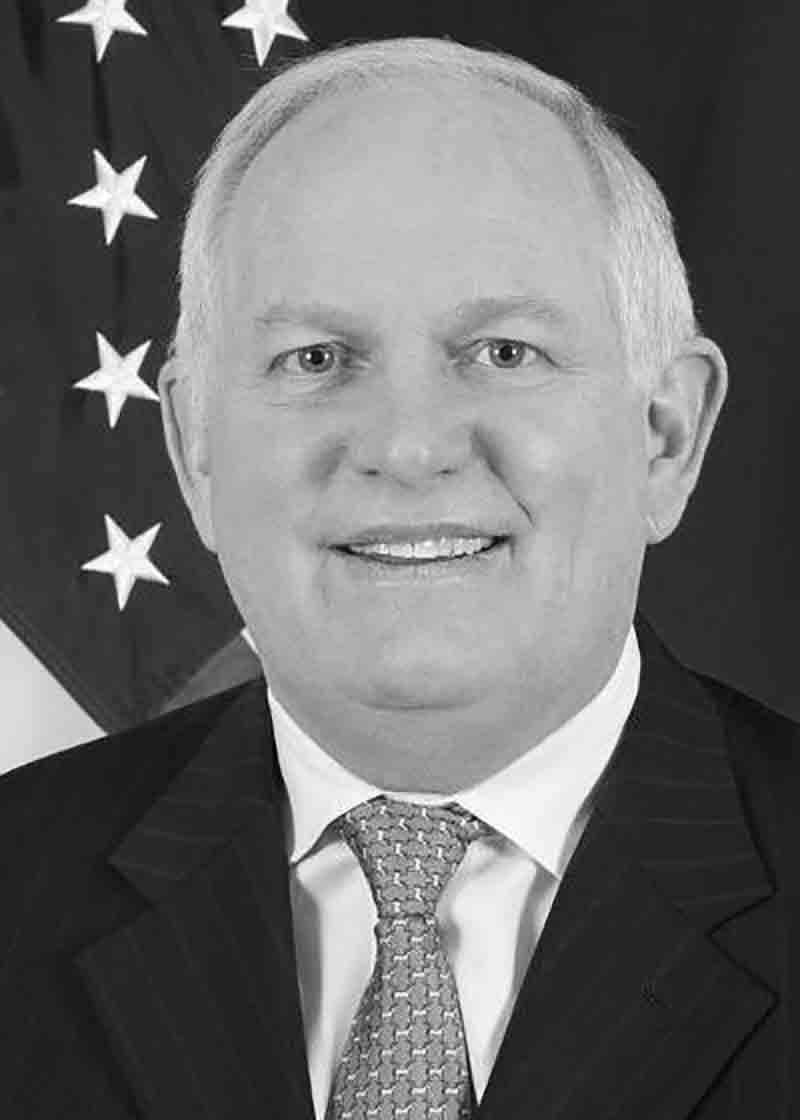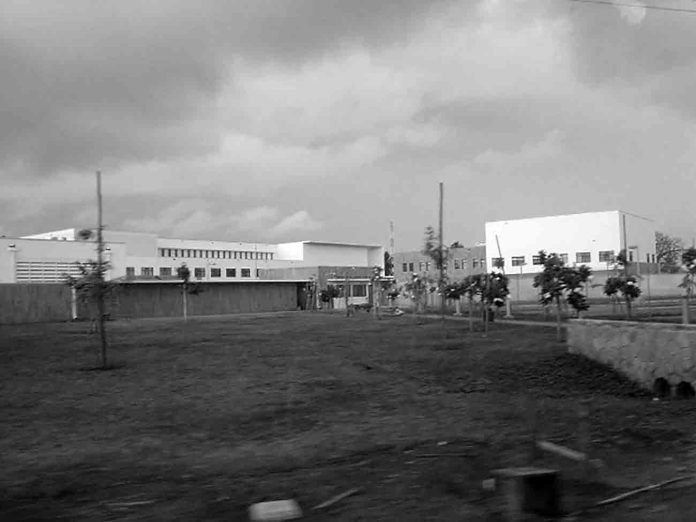A Quick Snapshot of the US Embassy Tanzania
Policy and History of the US Embassy Tanzania
Tanzania and the U.S. have a long-standing relationship based on shared values, mutual respect, and a desire for a more prosperous and peaceful future. In 1961, the U.S. established diplomatic ties with Tanganyika, a newly independent country. Tanzania was formed in 1964 when Tanganyika and Zanzibar decided to merge to create a new nation that gave birth to the Tanzania US Embassy.
The United States Mission in Tanzania, which is the US Embassy in Tanzania, is dedicated to promoting human rights, democracy, good governance, health and education, economic prosperity, and support for security, peace, and the rule of law.
The Tanzania embassy in US creation makes Tanzanians liable for U.S. assistance. The U.S rendered assistance through various programs, including Power Africa, Let Girls Learn, the PEPFAR [President’s Emergency Funds for AIDs Relief], Feed the Future, the President‘s Malaria Initiative, and the GHSA [Global Health Security Agenda]. All of which help Tanzania achieve its goals. The United States also supports efforts in the larger East African areas. The United States’ Chief of Mission is authorized to Tanzania bilaterally and the EAC [East African Community] regionally.
Tanzanians participate in several exchange events in the U.S. each year, including the Hubert Humphrey Companionship, Fulbright Program, and the YALI [Young African Leaders Initiative]. Since 2002, the Ambassador’s Trust for Cultural Conservation has supported several restoration projects, including the legendary remains at Kilwa Kisiwani, two mosques, and an Anglican house of worship in Zanzibar.
The US Embassy Tanzania also facilitated the deployment of more than 2,850 Peace Corps Helpers in Tanzania since creating the Peace Corps in 1961. Volunteers learn Swahili and assist the communities with agricultural, health, and educational programs during their service.
US Embassy Tanzania Mission Leaders
Ambassador Donald J. Wright, M.D., M.P.H

On April the 2nd, 2020, Ambassador Donald John Wright was inaugurated as the U.S. Ambassador to Tanzania embassy Washington DC US. Dr. J. Wright has been head in health policy and public health both domestically and abroad for the last 17 years, including service to the U.S. Ministry of HHS [Health and Human Services], the U.S. Ministry of Labour. And to the U.N. as a physician and career partner of the Top Executive Service.
Dr. Wright worked in the United States federal government as the acting and permanent Assistant Secretary for Health, the Deputy Executive Secretary for Health Quality, the Principal Deputy Executive Secretary for Healthcare, the Deputy Executive Secretary for Health, as well as the Secretary of HHS [Health and Human Services] – Health Promotion\Disease Prevention, before being appointed Ambassador to US Embassy Dar es salaam Tanzania. He oversaw the ODPHP [Office of Disease Preventing and Health Promotion], the ORI [Office of Research Integrity], and the OSHA [Office of Occupational Medicine]. He was also the PCSFN [President’s Council on Sports, Fitness, and Nutrition’s Executive Director]
Dr. J. Wright led Healthy Citizens 2020, a platform for public-health objectives. These include a detailed set of 10-years national health goals, the Dietary guide rules for Americans, the Physical Fitness Guide rules for Americans, and national action master plans to address drug-related problems and health-care-associated infections. He served as the Director of ODPHP from 2012 to 2020. As the U.S. delegate to the Global Health Organization’s Executive Committee, he represented the U.S. He was on the National Cancer Institutional Advisory Committee while serving as a Physician for the OOM [Office of Occupational Medicine] at the OSHA [Occupational Safety and Health Administration].
Before becoming the ambassador to the US Embassy Tanzania, Dr. Wright has spent his career advocating for disease prevention, healthcare delivery, emergency preparedness, healthcare quality, healthy aging, occupational health, health promotion, and the eradication of health inequities in the United States. His efforts to improve hospital and community emergency readiness for pandemic influenza, natural disasters, and acts of terrorism such as the terrorist attacks on US embassies in Kenya and Tanzania have also been instrumental.
Before joining the government, Dr. John Wright was a devoted clinician in occupational health and family medicine, with over twenty years of extensive medical care and occupational medicine consulting in Central Texas.
Ambassador Wright of the embassy of Tanzania in US, a son of Texas, and his spouse currently reside in Dar city, Tanzania. Dr. J. Wright graduated from Texas Tech University with a bachelor’s degree in zoology, a medical certificate from the University of Texas, and a Ms in public health degree from the Medical Institute of Wisconsin. He received his training in family medicine at Baylor Institute of Medicine and is a board-certified practitioner in both preventive medicine\occupational health and family medicine.
Deputy Chief of Mission Robert A. Raines
Robert A. Raines is a career Foreign Service officer with the grade of Counsellor. Mr. Raines worked as the Acting Head for Planning, Policy, and Resources in the Headquarters of the Undersecretary for R\PPR [Public Affairs and Public Diplomacy] and as the Head of Strategic Communications at the headquarters of the NSC [National Security Council] before arriving in US Embassy Tanzania. Service in the Bureau of NEA [Near Eastern Affairs] and the CSO [Conflict Stabilization Operations] Bureau are two other domestic postings he worked at. Islamabad, Ecuador; Pakistan; China; Quito, Guangzhou, and China are among Mr. Raines’ abroad postings.
Mr. Raines holds a master’s certificate in International Security Studies from the National Défense University’s Institute of International Security Affairs, a law certificate, and a bachelor’s certificate in philosophy from Brigham Young College. Mr. Raines worked as a clerk for the state of Maine Supreme Judicial Court and practiced utility litigation in Maine, Portland, before joining the Foreign Service. In Dar es Salaam, he is joined by his spouse, Madeeha Shams, and their two kids.
The US Embassy Bombing in Kenya and Tanzania 1998
When Were the US Embassies in Kenya and Tanzania Bombed?
The US embassy bombings in Kenya and Tanzania happened on August 7, 1998. The United States embassies in Nairobi, Kenya, and Dar es Salaam, Tanzania, were simultaneously bombed in terrorist attacks. The 1998 bombing of US embassies in Kenya and Tanzania killed 224 people. The Nairobi bombing killed 213 people, including 12 Americans, and injured more than 4,000 others. The Dar es Salaam bombing killed 11 people and injured 85. The attacks on US embassies in Kenya and Tanzania were carried out by al-Qaeda, a terrorist organization led by Osama bin Laden.
US Embassy Tanzania Contact Information
The US embassy Tanzania address is;
686 Old -Bagamoyo Roadway,
Msasani, Dar es Salaam
US embassy Tanzania contacts– Telephone: 255–22-229–4000
The US Embassy Tanzania Consular Section
The U.S. Embassy in Tanzania is located in Dar es Salaam and provides consular services to American citizens in the country. The consular section of the embassy can help with a variety of services, including us embassy in Tanzania visa application, us embassy Tanzania grants, us embassy Tanzania scholarships and US embassy Tanzania jobs. If you need assistance from the consular section, you can contact them by email or phone. You can also visit the consular section in person, but appointments are required. To make an US embassy Tanzania appointment, you can use the online scheduling system.
The Tanzania US Embassy Gov Visa Services
The United States Embassy in Tanzania is responsible for providing visa services to individuals seeking to enter the United States for a temporary period. The Embassy is located in Dar es Salaam and provides a full range of visa services, including Tanzania us embassy visa application for nonimmigrant and immigrant visas, as well as citizenship and passport services.
The Tanzania Embassy US strives to provide efficient and high-quality visa services to all individuals who meet the requirements for a U.S. visa. We are committed to processing visa applications in a fair, efficient, and transparent manner, and we expect all applicants to adhere to the requirements and procedures for applying for a U.S. visa.
Visa Application US Embassy Tanzania Process
The United States Embassy in Tanzania accepts the US embassy visa application Tanzania for individuals seeking to enter the United States for business, pleasure, or study. For those interested in applying for a US embassy Tanzania visa, the process begins by filling out an online application. After submission of the application, the applicant will need to schedule an US embassy Tanzania visa appointment interview at the embassy. During the interview, a consular officer will ask the applicant visa application US embassy Tanzania questions about the application and decide whether or not to issue a visa. If approved for a visa, the applicant will be given instructions on how to pay the visa fee and submit their passport for processing. Once the passport has been processed, the applicant will be able to pick it up at the embassy and use it to travel to the United States.
For more articles related to the Government of Tanzania and the Society (Community), click here!

































